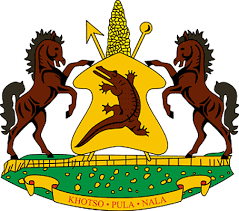The already floundering Ministry of Health continues to make decisions that could be described as digging its own grave.
Earlier this month, the ministry advertised the long-vacant position of Director General of Health Services, a role tasked with steering the nation’s health sector through leadership, strategy, policy formulation, program oversight, and budget management.
The qualifications are exacting: a PhD in a medical field or public health with five years in management, or a master’s degree with 10–15 years’ managerial experience, among other alternatives.
But as the application deadline of November 3, 2025, looms, one of the few candidates with the requisite expertise, ophthalmologist Dr. Wenjun Fan, has been suspended.
Dr. Fan, one of fewer than three doctors in Lesotho holding a PhD, was sidelined for allegedly disclosing confidential information to the media. His suspension, effective October 24, 2025, to January 24, 2026, with full pay, prevents him from attending work or even entering ministry premises without written permission.
This move effectively sabotages his chances for the coveted post.
Section 20 of the Lesotho Constitution protects the right to participate in public affairs. This includes the right to hold public office or take part in government or administrative functions, subject to the law.
In other words, citizens who are qualified should be able to compete for positions and perform their duties in public service.
If shortlisted or eventually selected, he must seek special permission just to attend interviews or assume duty, a bureaucratic quagmire that no one else faces.
This effectively sidelines him from the race before it even begins.
The timing could not be worse. With the closing date for applications fast approaching, Dr. Fan is left at a disadvantage not because of lack of skill or experience, but because of an administrative decision that isolates him from the process.
Fan’s absence also leaves Lesotho with just one practicing ophthalmologist. The human cost of sidelining this expert is immediate and tangible.
Meanwhile, his warnings about systemic failures at have proven prescient.
In a letter to Medical Superintendent Dr. ‘Mabatho Masupha, Fan detailed miscommunication between staff and management, departmental meetings held without the knowledge of Heads of Departments, and dangerous directives placing patients’ lives at risk.
He accused the superintendent of instructing him to refer patients with simple eye conditions, correctable with spectacles, to Queen ’Mamohato Memorial Hospital (QMMH) or even to Bloemfontein.
He also highlighted improper patient admissions, already resulting in at least one death.
“As the eye consultant, I can only see 30 to 40 patients a day,” Dr. Fan explained. “With two ophthalmic nurses, we could manage up to 100. Without support, it is impossible.” Yet hospital management, he claims, deliberately restricted nurse assistance, effectively dismantling the eye team and forcing him to limit consultations.
Patients who spoke to this publication have corroborated the dysfunction.
One patient described being attended to by a rude nurse at the eye clinic, only to find prescribed medication unavailable, confirmation of supply shortages.
Administrative chaos extends to the Dental and ENT departments, where patients face pre-dawn queues, hours-long waits, and abrupt interruptions.
Negligence and misdiagnosis have exacted a human toll. A patient recounted being misdiagnosed and sent home with a drip needle improperly inserted, a horrifying ordeal handled with apparent indifference.
Tragically, the system’s failures allegedly claimed the life of Malebuli Bolofo’s brother, admitted for the flu and later undergoing lung surgery for pulmonary edema.
Despite signs of recovery, he died due to inadequate post-operative care.
“I suspect my brother passed because he did not receive the care he was supposed to get after the operation,” Bolofo said. “If it had been handled properly, he would be alive today.”
Summary
- a PhD in a medical field or public health with five years in management, or a master’s degree with 10–15 years’ managerial experience, among other alternatives.
- Fan is left at a disadvantage not because of lack of skill or experience, but because of an administrative decision that isolates him from the process.
- He accused the superintendent of instructing him to refer patients with simple eye conditions, correctable with spectacles, to Queen ‘Mamohato Memorial Hospital (QMMH) or even to Bloemfontein.

Authored by our expert team of writers and editors, with thorough research.








